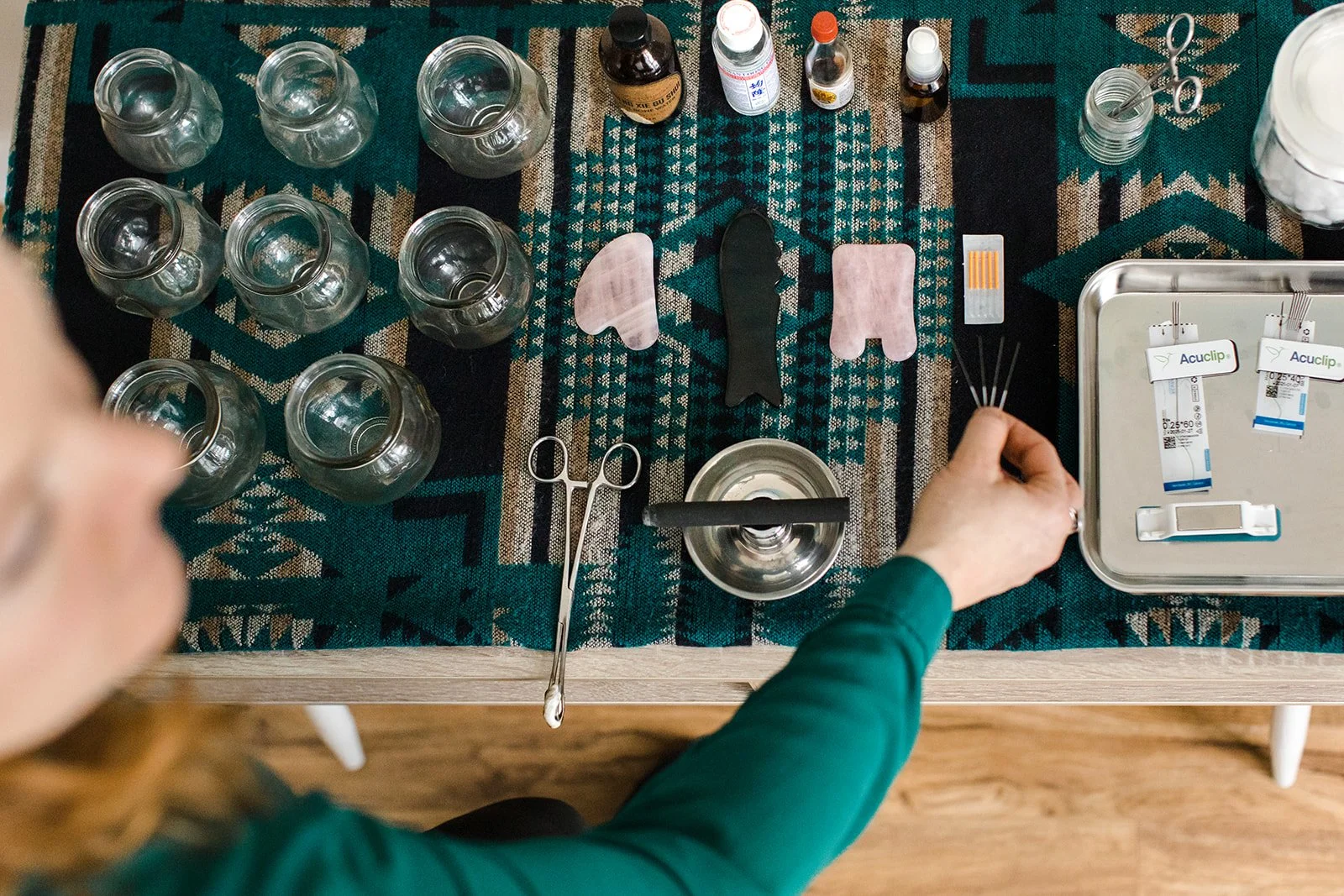Frequently asked questions
Curious how those little needles work? Have a read over our frequently asked question section.
What is traditional chinese medicine (TCM)?
Traditional Chinese Medicine (TCM) is a structured, complete system of medicine that has been crafted and successfully practiced for thousands of years. It offers a holistic approach that centres around achieving optimal health & wellbeing through internal balance. Chinese Medicine is more than the medicine itself, it is a way of life that harmonizes with nature and balances the body and mind.
What is acupuncture?
Several thousand years ago, East-Asian practitioners discovered that the body forms disharmonies as a result of the various physical and mental stresses of life. Chinese theory explains these disharmonies as an imbalance of opposing forces called yin and yang. This imbalance disrupts the movement of the body’s vital energy (Qi) along the channels through which the body’s energy is thought to flow. Acupuncture restores the smooth flow of Qi and unblocks stagnant energy, allowing it to flow smooth and freely again.
How does acupuncture work?
Acupuncture is the insertion of fine needles (as thick as a human hair) into the body for therapeutic effect. Traditional Chinese acupuncture is based on theories of Qi (energy) and Xue (blood) flow through distinct channels or meridians.
How many treatments will I need?
The number of treatments needed will vary from person to person. Some people experience immediate relief while others may take weeks or months to achieve results. Chronic conditions usually take longer to resolve than acute ones.
Treatment frequency depends on a number of factors: your constitution, the severity and duration of the problem and the health and abundance of your qi. An acupuncturist may suggest one or two treatments per week, monthly visits for health maintenance and seasonal tune ups.
What does it feel like?
The sensation caused by an acupuncture needle varies depending where the acupuncture needle has been inserted. You may experience a numbness, heaviness, tingling or a dull ache. Sometimes people experience a little pain as the needles are inserted, or a sensation of energy spreading and moving around the needle. This is called a qi sensation. All these reactions are good and indicate the treatment is working. Most people find the experience to be very relaxing and find a sense of deep peace and well being.
What should I do before and after a treatment?
Try not to have a large meal within 1 hour of your appointment, as the process of digestion may alter the pattern of your pulse and you may have to lie on your stomach.
After a treatment you are likely to be relaxed and calm. If the treatment has been particularly strong, you may feel tired and want to take it easy. I suggest trying to avoid any strong physical or mental activity afterwards so your body and mind have the space to integrate the treatment.
I have an active ICBC claim, can you help me with my recovery?
Absolutely! Many people are unaware of how beneficial acupuncture can be for helping recover from whiplash, headaches, low back pain and the trauma of being in a motor vehicle accident. You do not need a doctor’s referral for your ICBC coverage to take affect. All ICBC claims are automatically approved for 12 acupuncture treatments and if required, an extension can be requested for additional treatments.
